White Chamber (2018)
Directed by: Paul Raschid
Written by: Paul Raschid
Starring: Amrita Acharia, Oded Fehr, Shauna Macdonald
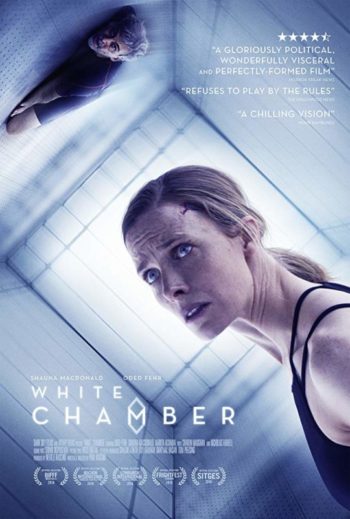
WHITE CHAMBER
Directed by Paul Raschid
Though horror can get frowned upon for being lowest common denominator, among the most interesting things about the genre is how well it provides a platform to comment on social issues. Be it Dawn of the Dead’s focus on consumerism, Get Out’s look at race relations or The Purge’s awkward use of metaphor to explore modern America, the films often reflect the times. And though it’s by no means a classic, Paul Raschid fiction adds post-Brexit Britain to this list, creating a near-future version of the country torn apart by civil war. An opening montage offers a slick broadcast for the United Kingdom Liberation Army: a far left terrorist insurgent against a populist, far right, rule. How, they ask, has this once great nation lapsed? It’s a question that gets explored from multiple angles over the hour and a half that follows, with both a rebel and a government representative getting their turn in the titular chamber. It’s an intriguing set-up, and in interrogating the motives for each side the film avoids some of the most consistent pitfalls of dystopian movies. To paraphrase a key scene, good and evil don’t exist in war. It’s just a difference in perception.
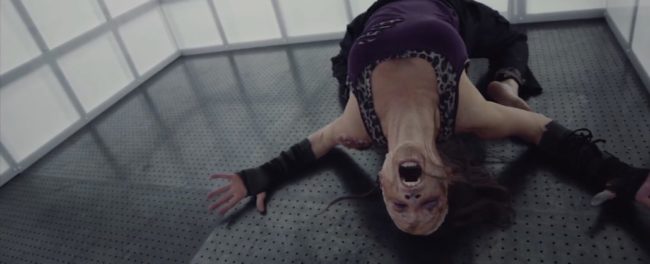
So we start with Elle (Macdonald) getting tortured in the room by a member of the UKLA, who wants to know what it was used for. And though she lies about being a delivery person, named Ruth, we soon learn she actually led the project to refine a super-amphetamine. The goal was to create the kind of super soldier the British military needed to fend off their foes. And her guinea pig is Narek Zakarian (Fehr): the face of the rebellion. For five days he’s drugged up, abused and sleep-deprived for the sake of science. To be fair, Elle has a rationale for everything she does, plus a genuinely interesting backing story, to elevate her above a generic villain role. It’s also an interesting structural choice, that’d maybe work best if flashbacks were used sparingly – or if they amounted to half the movie at the most. But with the present day bits amounting to little more than prologue and epilogue, instead of being part of a dual narrative, we get a vacuum where there should be tension. We know the rough direction of travel about an hour or so before the characters do. This means that we know that the tables will turn, so by extension, we know experiments will backfire in some way. And with the real Ruth (Acharia), who begins the film as an apathetic admin girl, showing signs of a Chekov’s conscience then how and why this happens becomes disappointingly predictable.
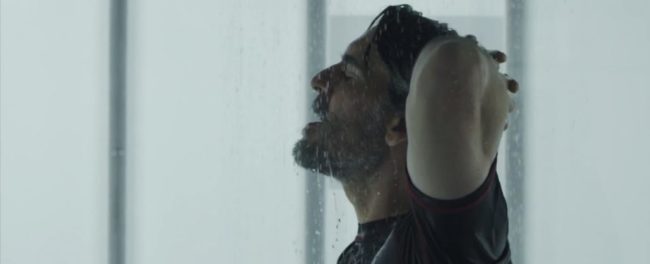
It’s frustrating since the premise itself is cool, and the narrative inevitability undermines the forward momentum of the piece. Still, it means we an immediate rapport with Elle that the next hour or so tests. It also means that the UKLA are not glorified throughout since we know how violent they can be from the opening, along with hearing tales of bad things they’ve done. Both leads help too, with MacDonald playing Elle as both cold and deeply damaged whilst Fehr gives a raw, manic, energy to his performance. There are also some individually excellent scenes, including some uncomfortable gore a brief history of how drugs have been used in warfare before. The morality play approach is also genuinely quite tough for audience identification, with the violence begets violence ethos meaning neither side comes out covered in glory. Yet after a few conversations about this ambiguity, where each side accuses the other of war crimes, it begins to drag as we’re left waiting to return to the genuinely unpredictable present. Speaking of which, whilst this film is still something of a missed opportunity, it’s far from bad and should still provide a good antidote if you just want something to escape from everyday life with. For now.
Rating: 







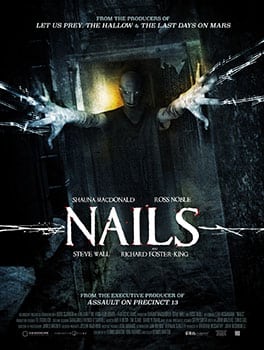
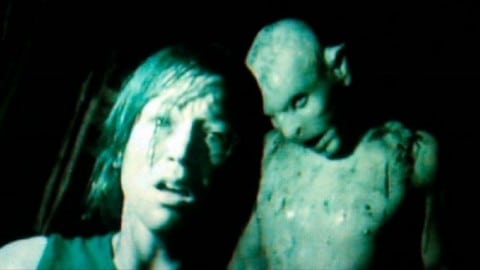
Be the first to comment